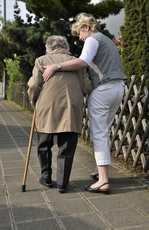Opening up a joint bank account is one of the first things that some area seniors and their loved ones consider when they begin seriously analyzing their need to conduct New York estate planning. Providing a child or other trusted relative access to one’s finances is often the easiest way for a potential victim of elderly financial exploitation to provide an extra set of eyes on their finances. With many unscrupulous individuals willing to prey on vulnerable community members for their own financial advantage, some protection is better than none.
However, as was discussed in a March New York Times blog post, the joint bank account option is typically a dangerous and inadequate means of protecting a senior family members assets.
The joint bank account can create problems for both the senior and the co-signer. If for some reason the co-signer has financial problems, that individual’s creditors may be able to go after the senior’s account, regardless of the elder member’s connection to those debts. These accounts also include a right of survivorship, which entitles the family member who joins in the account to retain the proceeds following the older family member’s death. The potential for complicated family disagreements around that issue are clear and should be avoided.
Fortunately much more comprehensive, tailored, and effective means of protecting and preparing an estate are available. For example, a New York elder law attorney would be able to explain that a more logical solution may be for a family to create a durable power of attorney. This legal instrument often provides more balance to fill the needs of an aging senior–this option comes with both rights and responsibilities for the family members involved.
Continue Reading ›
 New York Estate Planning & Elder Law Blog
New York Estate Planning & Elder Law Blog


